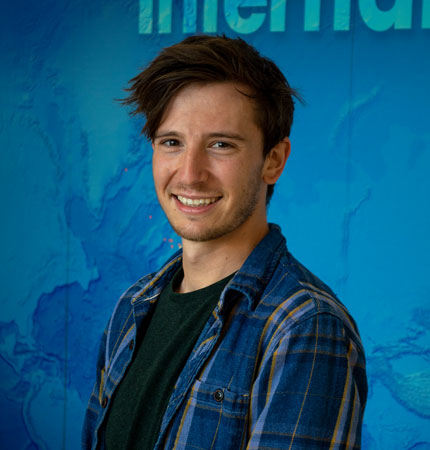Multistressor impacts of ocean acidification and warming on regeneration and biomineralisation in coastal sea urchins
The marine environment is under increasing pressure from ocean warming and acidification. Colder water has a higher capacity for absorbing atmospheric carbon dioxide, resulting in a greater possibility for northern coastal waters to have a reduced pH buffering capacity in future climate change scenarios. This can lead to seasonal undersaturation of aragonite, magnesium calcite (MgCa), and other forms of calcite that organisms utilise to build their calcite skeletons. Biomineralising organisms such as sea urchins inhabiting these shallow coastal waters are adapted to this usually dynamic system with extreme environmental fluctuations, but the mechanisms for coping with extended periods of low pH in combination with the elevated temperatures predicted in a warming climate are unknown. MgCa calcifiers such as these sea urchins are therefore vulnerable to changing carbonate chemistry in Scottish temperate latitudes due to the trade off in dissolution at lower pH with skeletal strength.
This project will focus primarily on two inter-connected questions:
- How will sea urchins remineralise and regenerate their tissues in a future multi-stressor environment?
- Are the effects of these multiple climate-change associated stressors additive, antagonistic, or synergistic?
Supervisors
Prof Michael Burrows – SAMS
Dr Helena Reinardy – SAMS
Dr Victoria Sleight – Aberdeen University
Funder
NERC – SUPER DTP
University
University of the Highlands and Islands
Employment
2018-2021 - Research Technician, International Atomic Energy Agency
2015-2018 - Technician, University of Edinburgh
Higher Education
2015 - BSc (Hons) Biological Science, Heriot-Watt University
Peer Reviewed Publications
Bermudez J.R., Metian M, Oberhaensli F, Taylor A, Swarzenski P (2021). Preferencial grazing and repackaging of small polyethylene microplastic particles (≤ 5 μm) by the ciliate Sterkiella sp. Marine Environmental Research 166: 105260. doi: 10.1016/j.marenvres.2021.105260.
Pyl M, Danis B, Oberhaensli F, Taylor A, Swarzenski P, Metian M (2021). An effective method to assess the sorption dynamics of PCB radiotracers onto plastic and sediment microparticles. MethodsX 8(9): 101396. doi: 10.1016/j.mex.2021.101395.
McNicholl C, Oberhaensli F, Taylor A, Holmerin I, Swarzenski P, Metian M (2021). Deoxygenation reduces growth rates and increases assimilation of essential trace metals in gilthead seabream (Sparus aurata). Environmental Pollution 288: 117786.
McNicholl C, Koch M, Swarzenski P, Metian M, Oberhaensli F, Taylor A, Gomez-Batista M. (2020). Ocean acidification effects on dissolution and calcification in tropical reef macroalgae. Coral Reefs. doi:10.1007/s00338-020-01991-x.
Belivermis M, Besson M, Swarzenski P, Oberhaensli F, Taylor A, Metian M. (2020) Influence of pH on Pb accumulation in the blue mussel, Mytilus edulis. Marine Pollution Bulletin 156: 111203.
Besson M, Jacob H, Oberhaensli F, Taylor A, Swarzenski P, Metian M. (2020). Preferential adsorption of Cd, Cs and Zn onto virgin polyethylene microplastic versus sediment particles. Marine Pollution Bulletin 156: 111223.
Aminot Y, Lanctot CM, Bednarz VN, Robson WJ, Taylor A, Ferrier-Pages C, Metian M, Tolosa I. (2020). Leaching of flame-retardants from polystyrene debris and its effects on coral. Marine Pollution Bulletin 151: 110862.
